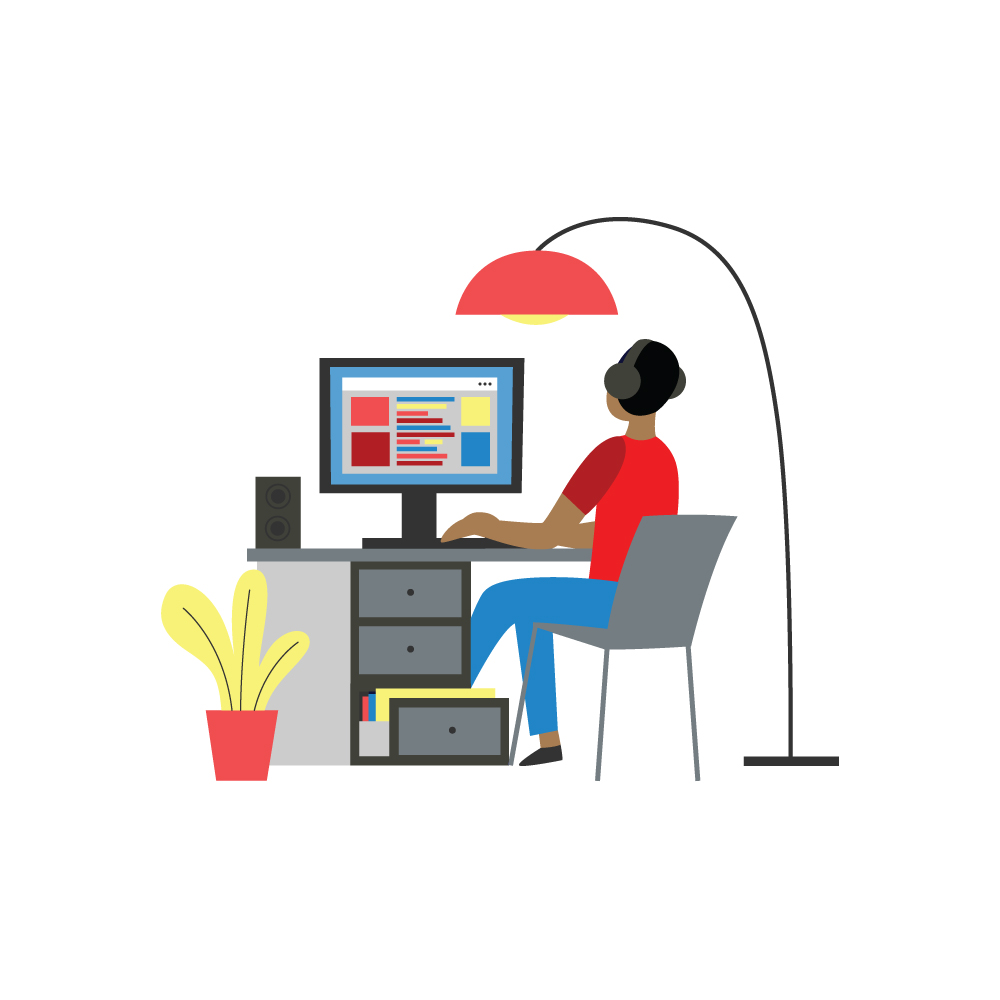
My name is Sue, and I’m a long-time, full-time freelancer. While most of the time I’m in the trees of my business, once in a while I zoom out to the forest and think about how different my way of working has been from that of other people.
For 20 years, I’ve been the only one who cares that I’m at my desk at 9 a.m.
For 20 years, I have worked for people I’ve never met in person. Multiple bosses instead of one. The freedom to take the afternoon off to run an errand without clearing it with anyone (along with the harsh stop on cash flow that accompanies it).
Having spent the majority of my career working this way, I’m clearly Team Freelance. So, here’s why it’s been so great for me, and also why it might not work for everyone.
Autonomy
The pandemic-driven trend toward working from home (WFH) has provided the world with a window into a major benefit of freelancing. Friends newly cleared to WFH tell me they can get a lot more focused time, and often have fewer meetings. I just nod. Of course, temper this with the fact that many have to also deal with the challenge of family and especially kids at home. For others, the isolation factor is a downer. Yet many offices are facing arguments in favour of hybrid models, suggesting that many more are on board with the benefits of WFH.
For freelancers, the autonomy extends even further than occasional WFH days. Those who work for a single employer still need to ask for time off, whether it be to go to the dentist or take a vacation. Not me. You also may not have a lot of choices when it comes to your assignments. If your boss decides you should be focused on editing the meeting minutes when you’d rather tackle the annual report, you’re on the minutes. If I have a client that makes me edit meeting minutes? I can choose to “fire the client,” in freelance speak. A difficult decision, but also freeing.
On the downside of being a freelancer, clients can fire us too. Or they may just run out of work. Or they may ignore our emails when we try to pitch them. If the total upside is autonomy, the downside description of freelancing is “100 per cent commission.” Yes, a strong referral network and some dedication keep the pipeline mostly full, but even the most experienced freelancer occasionally experiences the famine end of the feast-famine cycle — and that can be scary. Income reserves and marketing, even when you’re busy, help to balance out the ups and downs.
Variety
While a key to freelancing these days — especially for newcomers — is to pick a niche, I find there’s still an engaging variety of assignments and clients that are possible even within that. I can be working on a blog post, a marketing plan and a profile all on the same day. I have insight into how different organizations plan their communications, making me well-positioned to consult on strategy — because I’ve seen so many approaches. I’ve also been able to embrace variety in my work life; for example, I have taught at a college part-time for many years, and the flexibility of freelancing has allowed me to set aside part of my day for that.
Self-direction
Related to both autonomy and variety, the fun thing about owning a business is that you can try out new things. Want to build a micro-agency? Nobody to stop you. Try out a new niche? Go for it. Each year, I set myself a few new goals to try out in my business, whether they be new types of writing to learn (infographics, as we know them, were not a thing 20 years ago) or new tools that will help make my processes more efficient. I find this entrepreneurial aspect exhilarating, to always be thinking about new income streams and ways to grow.
The downside to self-direction is sometimes the world is not prepared for your greatness 🙂 and new directions are not always what you think they will be. Or sometimes the tools take a lot longer to learn than you thought.
Overall, what I’ve learned as a long-time freelancer is that I want to continue freelancing for another 20 years. It would probably take a call from The New Yorker to make me return to regular employment (my phone line is open). I’m looking forward to many more years of experimentation, variety and fun.
___
Previous post from Suzanne Bowness: A Little Help From My Friends: Starting a Mastermind Group
The Editors’ Weekly is the official blog of Editors Canada. Contact us.
Discover more from The Editors' Weekly
Subscribe to get the latest posts sent to your email.
